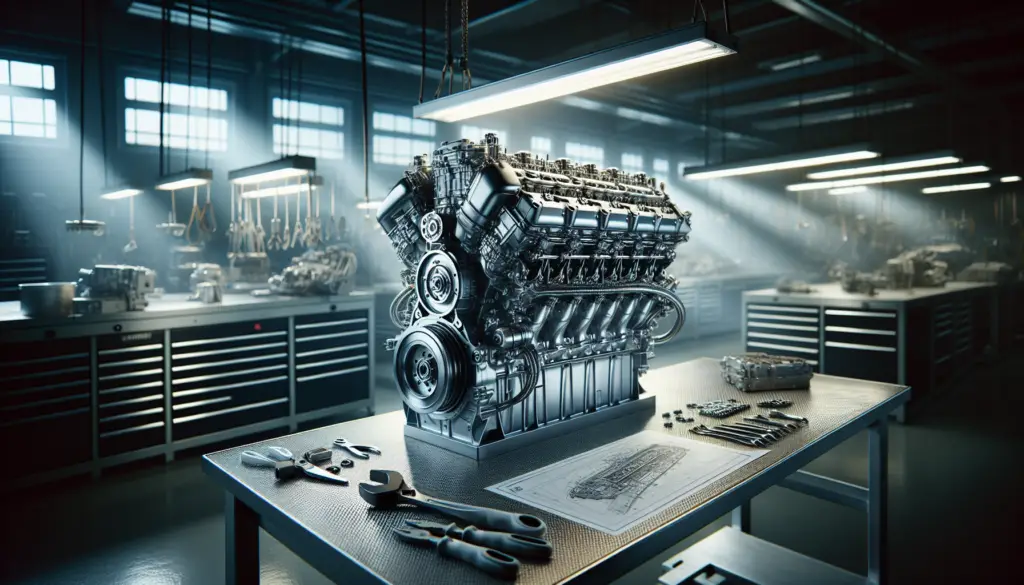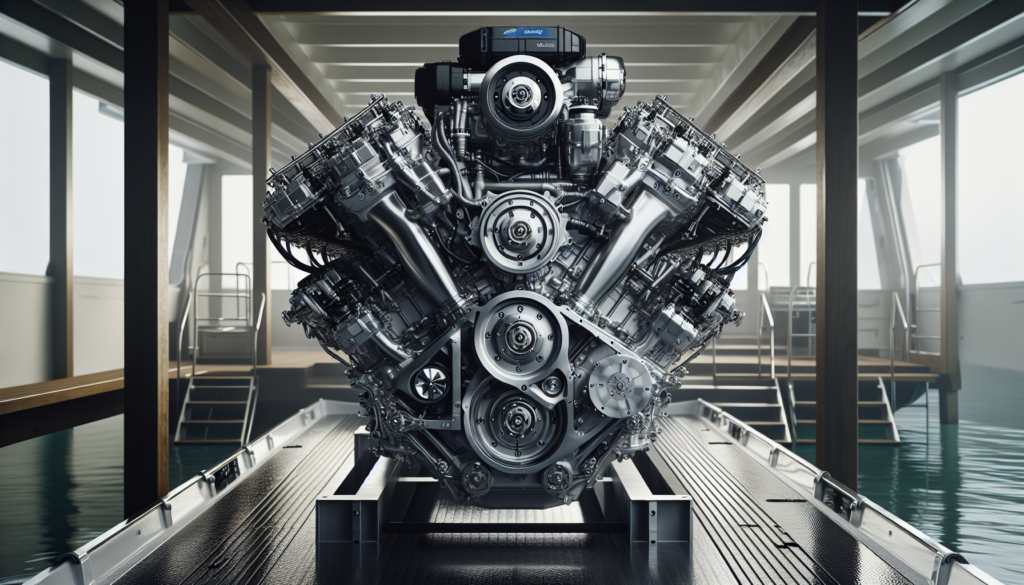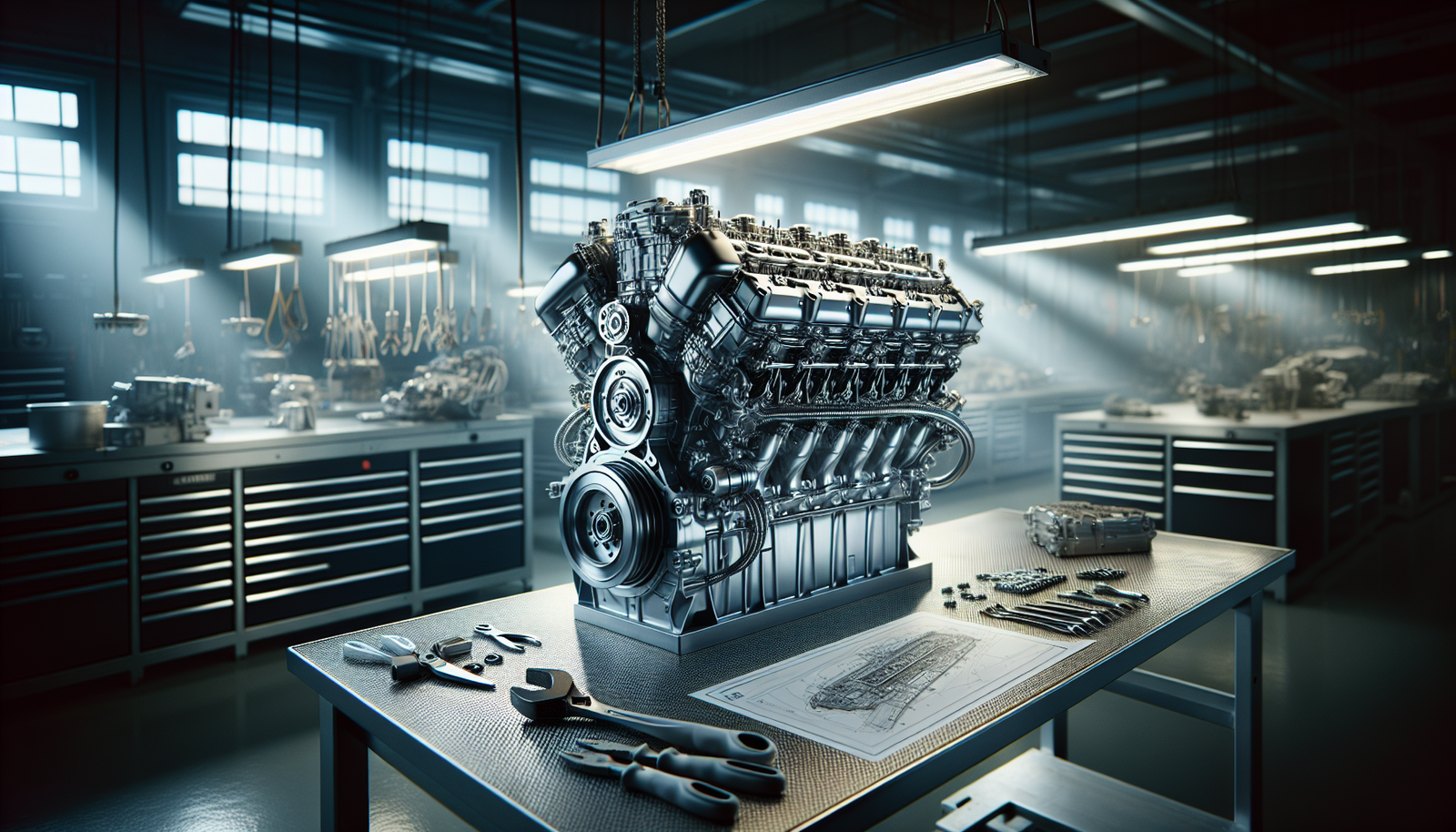You’re seriously considering upgrading your boat engine, aren’t you? Well, you’re on the right track. The article, “Upgrading Your Boat Engine: What You Need To Know,” is essentially your boat engine bible, debunking myths, demystifying confusing jargon, and offering expert tips on selecting the best engine for your boat. As a boat owner, you’ll find the information invaluable in making informed decisions and ensuring your boat performs at its optimum level.

Understanding Your Boat Engine
Before diving into the finer points of upgrading your boat engine, let’s first get a basic understanding of what a boat engine is and how it functions. This foundational knowledge will come in handy when you’re ready to make an informed choice about your upgrade.
The Basics of Boat Engines
Just like in your car, your boat’s engine is its power source, propelling it through water. The type of engine your boat needs largely depends on the particularities of the vessel itself, including its size and weight, and what you primarily use it for.
Types of Boat Engines
There are several types of boat engines. Outboard engines are quite common, thanks to their compact nature and easy maintenance. Inboard engines are another option, powering large boats and yachts. You also have sterndrive engines, which deliver car-like control with their rear propulsion. Last but not least, jet drives replace propellers with a pump jet for added maneuverability and safety.
The Components of a Boat Engine
A boat engine comprises several components. These include the engine block, which houses the cylinders; the crankshaft, converting the pistons’ linear motion into rotation to drive the propeller; and the exhaust system, which channels away exhaust gases. Also crucial are the fuel system, which feeds fuel into the engine, and the cooling system, which prevents overheating.
Why You Should Consider Upgrading Your Boat Engine
Upgrading your boat engine could offer numerous advantages, even though it might seem like quite the commitment. Here are some reasons why you might want to consider it.
Increased Performance
One significant benefit of engine upgrades is increased performance. A more powerful engine means more speed and better acceleration, enhancing your overall boating experience significantly.
Enhanced Fuel Efficiency
Modern engines often come with improved fuel efficiency, helping you save on fuel costs. This is not just great for your wallet but also for the environment.
Improved Resell Value
Even if you don’t plan on selling your boat soon, an engine upgrade can significantly enhance its resell value.
Deciding If Upgrading Is Necessary
Before you dive into the process of upgrading your boat engine, it’s essential to determine whether it’s necessary.
Determine Your Boating Needs
Think about what you primarily use your boat for. If you’re a leisure boater who enjoys calm lake trips, you may not need an all-powerful racing engine. But if you’re into water sports, or like long offshore fishing trips, an upgrade might be just what you need.
Assess the Current Conditions of Your Engine
Is your current engine frequently causing trouble? Are repair costs mounting? Does its performance leave much to be desired? These factors often signal that an upgrade may be necessary.
Consider Future Boating Plans
Your boating needs may change in the future. Maybe you’re planning to take longer trips, enter boat races, or even move your boat to a different environment like saltwater. All of these can influence your upgrade decision.

Choosing the Right Boat Engine
The perfect engine upgrade is different for every boater. Here are some factors to consider when choosing your upgrade.
Comparing Different Types of Engines
As we’ve touched on before, there are several types of boat engines, each with its unique advantages. Take time to study what each type brings to the table, and consider how these benefits align with your boating needs.
Finding the Correct Size and Power
Ensure to choose an engine that is appropriately sized and powered for your boat. An engine that’s too small may underperform, while one that’s too large may weigh your boat down.
Understanding Engine Brands
Just as with cars, certain boat engine brands are renowned for their quality and performance. It’s important to do your research before deciding on a brand.
Understanding the Costs of Engine Upgrades
While engine upgrades offer many benefits, they also come with costs.
Considering Engine Price
The cost of the engine itself is the most significant upfront expense. This can vary dramatically depending on the type, power, and brand of the engine.
Factoring in Installation Costs
Unless you’re planning to install the engine yourself, you’ll need to factor in professional installation costs.
Accounting for Future Maintenance and Repairs
Keep in mind that every engine will require periodic maintenance and occasional repairs. Be sure to consider these future costs.
Steps To Upgrade Your Boat Engine
Upgrading your engine can be simplified into these three steps.
Removing the Old Engine
The first step is to remove your old engine. This process requires expert knowledge and careful planning, especially given the complex network of systems involved.
Installing the New Engine
Once the old engine is out of the way, the new engine can be installed. This will involve connecting it to various systems, including electrical, fuel, and exhaust.
Testing the New Engine
Finally, you’ll need to test the new engine to ensure everything is functioning as it should be.
Hiring Professionals vs DIY Upgrade
You might be tempted to carry out the engine upgrade yourself, but it’s important to weigh this against the benefits of hiring professionals.
Benefits of Hiring Professionals
Hiring professionals ensure that your upgrade is carried out correctly and safely. They would have the necessary experience and tools to do the job right.
Understanding the Risks of DIY
While doing the upgrade yourself can be cost-effective, it carries serious risks. A faulty installation could lead to engine failure and potential safety hazards.
How to Choose the Right Professionals for the Job
When choosing professionals, ensure they have a reputation for quality work and customer satisfaction. They should also have a solid experience with the type of upgrade you’re undertaking.
Navigating Legal Issues with Engine Upgrades
Before proceeding with an upgrade, you should be aware of the potential legal implications.
Understanding Marine Emission Standards
Various regions have strict regulations regarding emissions from marine engines. Ensure that your new engine complies with these standards.
Navigating Licensing and Paperwork
Boat modifications may require specific licensing or paperwork. It’s essential to know what is required in your locale.
Dealing with Insurance Changes
Your boat’s insurance may change as a result of engine upgrades. Check with your provider before proceeding.
Maintaining Your Upgraded Engine
Once your new engine is in place, proper maintenance is key to keeping it at its best.
Regular Engine Checks
Regular checks will help detect any potential issues and address them before they escalate.
Understanding Common Maintenance Requirements
Familiarize yourself with your engine’s maintenance requirements. These could include oil changes, filter replacements, and more.
Long-Term Care for Your Engine
Beyond regular maintenance, consider the long-term care of your engine. This might involve winterizing your engine or using specific fuel additives.
The Impact of Engine Upgrades on Boat’s Performance
Finally, let’s look at the impacts an engine upgrade can have on your boat’s performance.
Understanding Performance Enhancements
As mentioned earlier, a new engine can provide significant performance enhancements including more speed and better acceleration.
Impact on Fuel Efficiency
A new, more efficient engine might consume significantly less fuel, saving you money in the long run.
Influence on Boat’s Handling and Speed
Upgrades can also influence your boat’s handling and speed. An appropriately powered engine can provide smoother handling while the added power could mean better top and cruising speeds. It really is all about finding the perfect balance for your boating needs.

